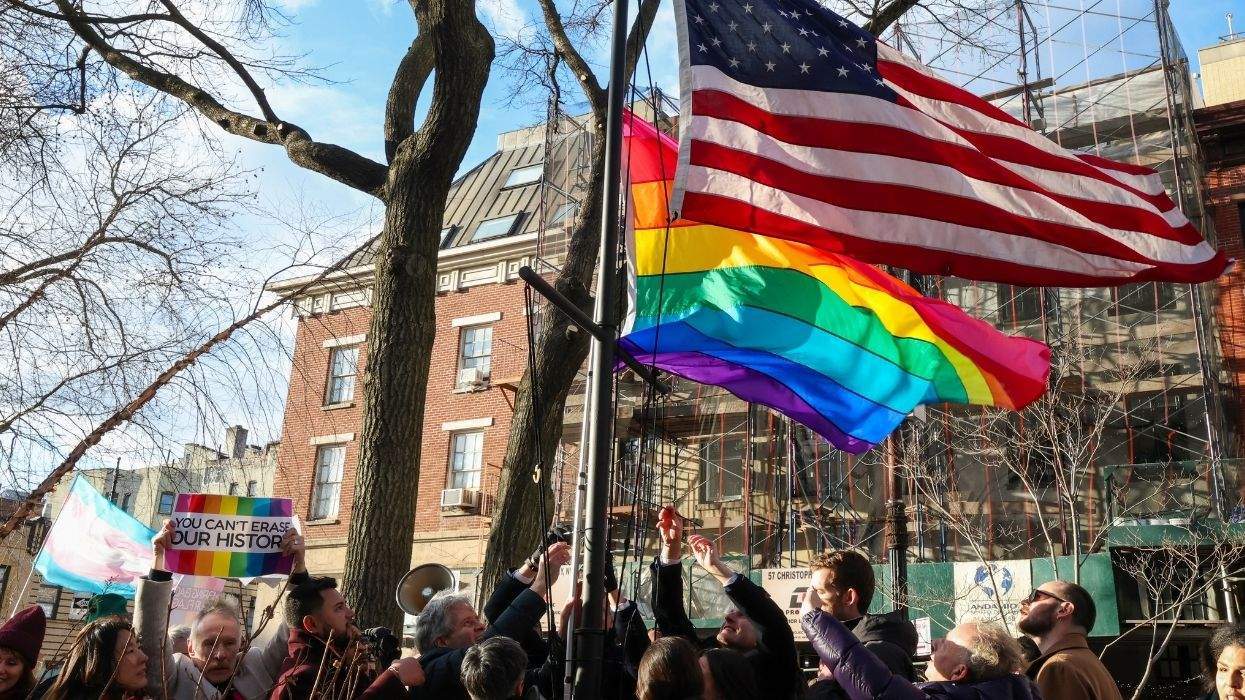Women from the LGBTQ+ community face more challenges in running for office than their male counterparts, a new report from the LGBTQ+ Victory Institute and Loyola Marymount University points out.
Keep up with the latest in LGBTQ+ news and politics. Sign up for The Advocate's email newsletter.
Among them are being discouraged from running because of their gender or gender identity, attacks based on their appearance or the way they dress, media challenging their qualifications, and gender-based harassment and violence, says the report, “The Experiences of LGBTQ+ Women Candidates: A Report From the When We Run Survey,” released Wednesday.
The report is based on the responses of 147 women who participated in the nationwide When We Run Survey of LGBTQ+ candidates, which was published in September and is the largest survey of these candidates.
More than one in four LGBTQ+ women respondents (27.2 percent) were discouraged to run because of their gender or gender identity — a rate four times higher than that of gay and bisexual men (7.1 percent). This was particularly common for transgender women, with 35.7 percent discouraged to run, compared to 25.2 percent of lesbian, bisexual, and queer cisgender women.
Four in 10 LGBTQ+ women (40.1 percent) faced attacks based on their appearance or the way they dress, compared to 27.8 percent of gay and bisexual men. More than one in 10 (10.9 percent) received attacks based on their appearance at least weekly, compared to 4.1 percent of gay and bisexual men. A greater proportion of lesbian, bisexual, and queer cisgender women (42 percent) reported being attacked for their appearance than trans women (32.1 percent).
Women also reported difficulty in being taken seriously, including having their qualifications challenged by media. A total of 28.6 percent said difficulty being taken seriously was a top challenge during their campaigns, while 21.4 percent of gay and bisexual men did. This was especially severe for trans women, with 32.1 percent reporting this problem, compared to 27.7 percent of lesbian, bisexual and queer cisgender women. LGBTQ+ women faced media challenging their qualifications to a larger degree than men — 16 percent of lesbian, bisexual, and queer cisgender women, compared to 10.5 percent of gay and bi men.
One in 20 (5.4 percent) women said they experienced gender-based violence during their campaigns, compared to 1.9 percent of gay and bisexual men. Among trans women, 7.1 percent faced gender-based violence on the campaign trail, while 5 percent of lesbian, bisexual, and queer cisgender women did. More than 80 percent of women reported fearing harassment before they started their campaigns, slightly more than gay and bi men (77.4 percent).
LGBTQ+ women continue to be underrepresented in political office — there are 501 currently serving, representing just 39.1 percent of LGBTQ+ elected officials nationwide.
“LGBTQ+ women are woefully underrepresented in public office, and the results of our survey shed light on why that is,” said a statement from Victory Institute President and CEO Annise Parker. “The data is clear: compared to LGBTQ+ men candidates, LGBTQ+ women candidates are more likely to be discouraged from running for office based on their gender, are more likely to be attacked for their appearance and face greater media bias. Despite the obstacles, LGBTQ+ women must continue to claim their seat at the table by running for office. It’s on all of us to help level the playing field for LGBTQ+ women candidates by recruiting and supporting them, calling out media bias and holding bigots accountable.”















Charlie Kirk DID say stoning gay people was the 'perfect law' — and these other heinous quotes
These are some of his worst comments about LGBTQ+ people made by Charlie Kirk.